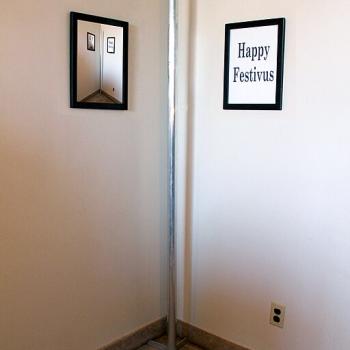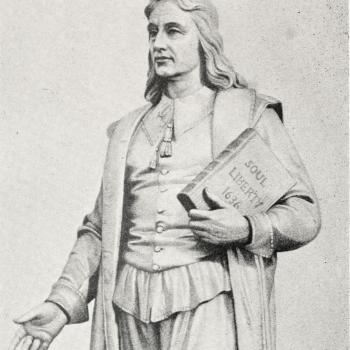This week closes Girl Scout cookie season in Massachusetts. (There are people out there who politely beg off buying a box with the excuse that they still have some of last year’s in the freezer: that’s just wrong.)

The Girl Scouts have successfully avoided much of the controversy dogging the Boy Scouts, although they have have had some dust-ups with religious bodies—disapproval from Dr. James Dobson in 1994 for muting fidelity to God, 2012 concern from the U.S. Conference of Catholic Bishops over program materials. They comfortably occupy space in the broad field of American religious liberty, honoring spiritual identity among their participants but keeping neutral about which one members should choose. The Council affirms that while they are “a secular organization that refrains from teaching religious or spiritual beliefs or practices, we believe that the motivating force in Girl Scouting is a spiritual one.” The national organization emphasizes that, “The Girl Scout Law includes many of the principles and values common to most faiths. Thus, while a secular organization, Girl Scouts has, since the movement began, encouraged girls to take spiritual journeys via their faiths’ religious recognitions.” Scouts can get their “My Faith, My Promise” pin plus more “recognitions” for activity with a wide range of faith communities.
Juliette Gordon Low (1860-1927) was born into a genteel family in Savannah, Georgia. A lovely, spunky, distinguished woman known to her family as “Daisy,” she enjoyed art, poetry, music, and athletics. She went to a finishing school in New York, and married a wealthy Englishman, William Low, in 1886. During the Spanish-American War, Juliette assisted at a relief hospital in Savannah. Her husband’s infidelity made the marriage unhappy, his death in 1905 left the young widow adrift. What should a smart, well educated woman do with herself? Acquaintance with Sir Robert Baden-Powell, creator of the Boy Scouts, inspired her to found a version of the group for American girls in 1912. “Come Right Over!” Low bade her cousin, in a famous account of a conversation held on a new-fangled telephone, “I’ve got something for the girls of Savannah and all America and all the world and we’re
going to start it tonight!”
The Girl Scouts—to which even Low’s Savannah neighbor Flannery O’Connor belonged for a time—gave American girls something to do. Girls could do things, Low insisted, and her organization set them to tasks: learning about nature, acquiring survival and first-aid skills, gaining competence in household repairs. In the 1920s they organized childcare for women going to vote; in the 1930s they aided clothing and food drives for needy families. During World War II they collected scrap metal and ran bicycle-courier routes. The club’s goal was to make females conspicuously capable, at a time when women were limited in professional options, and to make children useful, when childhood for middle-class girls—as distinct from their poorer colleagues who might work on street or in factory—was merely a time of play.
So what do Girl Scouts do now? Officially, the national council promotes expansion of girls’ entrepreneurial skills, involvement in STEM fields, and good health habits. The cookie advertisement pictured above proclaims, “Girl Scouts learn there are no limits. They can do anything. Be anything.” The girls in my daughter’s troop clearly enjoy their involvement, with plenty of giggles, crafts, cartwheels, and field trips. But I wonder about the enduring value of the club, given the Girl Power era we inhabit. Female representation in sports, academics, arts, politics, and professions is impressive. My daughter is constantly told she can do anything, be anything. (She can’t, but I wish other people besides a cranky mother could tell her this too.)
Reader, if you have a daughter—or if you bought a box—what do you think? How should Low’s impressive vision for capable young women go forth now, beyond field trips and cookie crumbs?












